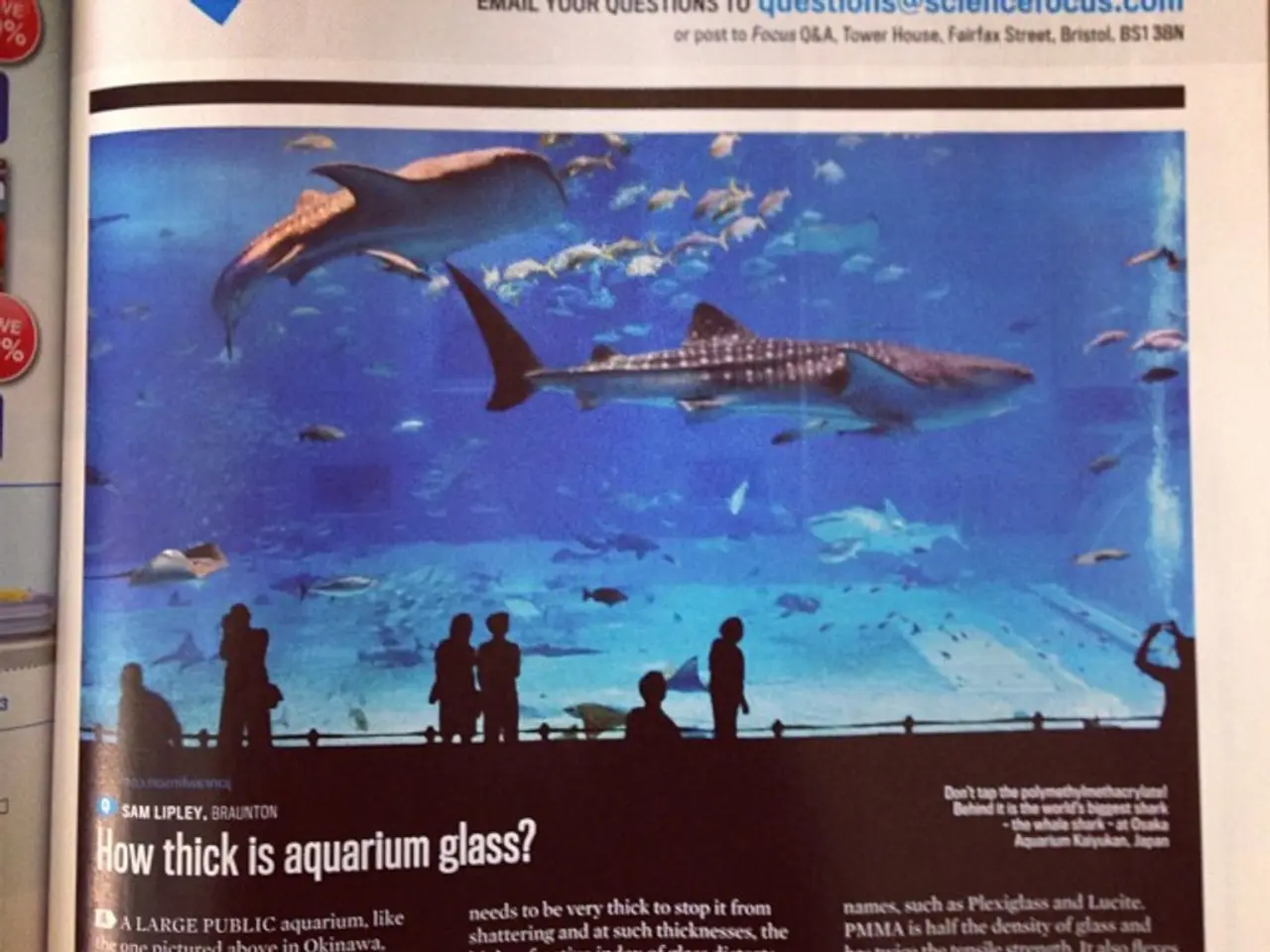Palestinians in Gaza yearn for fish, yet Israel enforces a sea access ban
In the conflict-ridden Gaza Strip, the Israeli forces have tightened their grip on the coastal region, enforcing a near-total ban on Gazan access to the sea since October 2023. This drastic measure has turned the once bountiful Mediterranean into a "no-go zone" for the local population, causing a humanitarian disaster of unprecedented proportions.
The Israel Defense Forces (IDF) have declared all bodies of water around Gaza off-limits, prohibiting fishing, swimming, and any sea access. Military warnings state that violations will be met with lethal force, a chilling message that has claimed the lives of over 210 Palestinian fishermen since October 2023, according to United Nations data.
For many families in Gaza, fishing has been one of the last available means for food and income. With the sea access banned, families face starvation, as they can no longer secure fish or livelihoods from the sea. Hussam Saadalla, an 8-year-old boy, is the unlikely breadwinner for his nine relatives, casting out a net into the shallows to catch fish for food.
The humanitarian crisis in Gaza continues to worsen, with Gazans risking death from Israeli boats and aircraft when entering the water. Fisherman Ziyad Abu Amira poignantly stated, "We don't have any other source of food but this one. If I don't bring it to my children today, I die."
The blockade and fishing restrictions exacerbate severe food shortages and famine in Gaza. The local health ministry warns that hundreds are at imminent risk of death due to hunger and malnutrition. The sea, which previously offered a place for bathing and some relief amid destroyed infrastructure, is now forbidden, intensifying the humanitarian suffering.
International condemnation of the blockade and deadly enforcement against fishermen has been swift. The International Criminal Court has issued arrest warrants for Israeli officials over war crimes related to Gaza, and the situation is under review at the International Court of Justice for potential genocide claims.
The UN Food and Agriculture Organization (FAO) reports that Israeli forces have destroyed most fishing boats and targeted Palestinians fishing just meters from the shore. Today, Gazan fishermen are banned from the Mediterranean, stripping people of another desperately-needed food source. The UN has stated that Gaza's fisheries industry is now working at just 7.3% of its pre-war production capacity.
The waters off the coast of Gaza have long nourished Gazans. Seven-year-old Fayza scavenges for fish from fishing nets as a source of food. The Mediterranean has been the site of international efforts to intercede on Gazans' behalf, such as the 2010 aid-laden civilian ships from Turkey and Greta Thunberg's aid boat attempt earlier this year.
Yet, some Gazan fishermen risk the water rather than the fatal gunfire in the shadow of aid points. Ismail Al Amoudi, a 16-year-old member of a family of fishermen, now views the waves with fear, stating that everyone is afraid when they go into the sea because they see death before their eyes.
Before the October 7 attacks, Gazan fishermen produced 4,660 tons of catch annually. Now, the yield is a mere 60 tons, with fish farms completely out of operation. The devastating impact of these fishing restrictions on Gaza’s local population and economy is clear: economic hardship, a deepening humanitarian crisis, and international concern.
- The world watches in disbelief as the Middle East's ongoing conflict in Gaza worsens, with Israel enforcing a near-total ban on Gazan access to the sea.
- The Israeli Defense Forces (IDF) have expanded their restrictions, prohibiting not only fishing but also swimming and any sea access, enforcing it with lethal force.
- This policy has caused a humanitarian disaster of unprecedented proportions, with over 210 Palestinian fishermen losing their lives since October 2023, according to United Nations data.
- For many Gazan families, fishing was one of the last available means for food and income, but now they face starvation due to the ban.
- Hussam Saadalla, an 8-year-old boy, has become the unlikely breadwinner for his nine relatives, fishing to provide food for his family.
- The health-and-wellness situation in Gaza continues to deteriorate, with hundreds at imminent risk of death due to hunger and malnutrition.
- The sea, once a source of food and bathing, is now a forbidden zone, intensifying the humanitarian suffering.
- The fishing restrictions have exacerbated severe food shortages and famine in Gaza, with the local health ministry issuing warnings.
- International organizations, including the International Criminal Court and the United Nations, have condemned the blockade and deadly enforcement against fishermen.
- The UN Food and Agriculture Organization (FAO) has reported that Israeli forces have destroyed fishing boats and targeted Palestinians attempting to fish just meters from the shore.
- Today, Gazan fishermen are banned from the Mediterranean, stripping people of another desperately-needed food source, with the UN reporting that Gaza's fisheries industry is now working at just 7.3% of its pre-war production capacity.
- The environmental-science impact of these fishing restrictions extends beyond humanitarian concerns, as the destruction of fishing boats contributes to climate-change issues and harm to marine life.
- As the international community grapples with issues such as travel, migration, war-and-conflicts, policy-and-legislation, crime-and-justice, accidents, sports, and general-news, the crisis in Gaza serves as a stark reminder of the consequences of inaction, highlighting the importance of car-accidents prevention, mental-health awareness, and healthy-cooking initiatives, as well as supporting cultural-travel and European football leagues like the Premier League, for a balanced and compassionate world.






